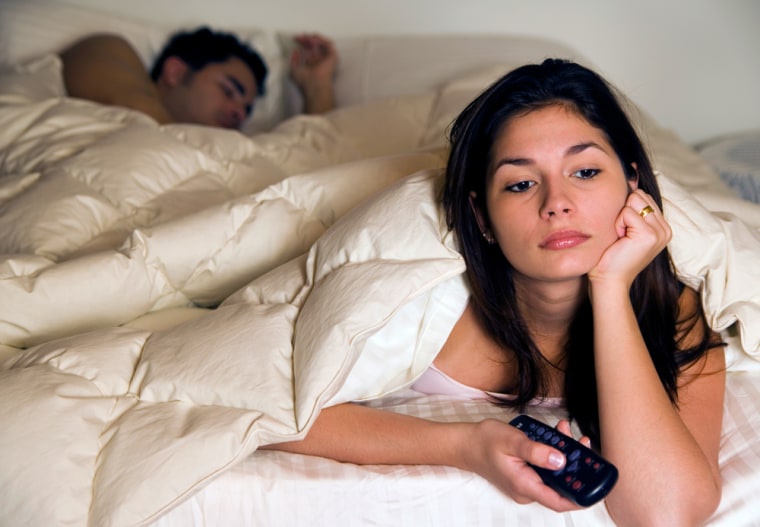Can't sleep? Nearly everybody's had a hard time falling asleep at least once, but 10 percent of the general population suffers insomnia regularly. Not only do they have a hard time falling asleep, but they awaken several times during the night and feel fatigued the next day.
The older you are, the more elusive the sleep gods can be. At least 25 percent of the elderly can't get a good night's snooze. When the sleep mask, aromatherapy and the white noise machine have failed, you don't have to pop a pill. Try these expert-recommended tips and you may find yourself snoozing soundly.
Eat, drink and be... awake
Avoid alcohol, caffeine and nicotine. A glass of wine with dinner won’t do any harm, but a couple of nightcaps can disrupt the quality of your sleep once you've metabolized the alcohol, causing you to wake up halfway through the night.
Nicotine pumps up your blood pressure, making it difficult to relax.
Say no to caffeine anytime later than mid-afternoon. Caffeine is a stimulant that can last in your body for five to eight hours. Some people can still feel the effects up to 12 hours later. It's not just the cuppa joe that can keep you awake — energy drinks, tea, chocolate and colas have caffeine.
Food can affect your slumber, so don’t eat a heavy meal too close to bedtime. If you're sensitive to tomato products or spicy food, lying down can aggravate heartburn, which can make falling asleep more difficult or wake you up in the middle-of-the-night.
Back to the womb
Make sure your bedroom is comfortable, dark and quiet. Finding the right temperature is important. Many people tend to be more comfortable in a cooler bedroom because our body thermostats drop to their lowest levels during the night, experts say. When it's too hot or humid, people tend to awaken more frequently or get stuck in the light sleep stage.
If muggy nights keep you awake, consider a dehumidifier or an air conditioner. If you like it hot, while your partner prefers it cool, you can always try wearing warmer pajamas or keeping an extra blanket for yourself.
Don't bring your laptop to bed
Use the bed only for sleep and sex. If there's a TV in your bedroom, don't watch it in bed. Don't use your bed for work. Dragging your wireless laptop there brings with it all the stress and interruptions that come with it.
Worry time
Schedule some "worry time" during the day. Stress is a big reason people can't sleep at night, but if you give yourself just 15 minutes to address the source of your problems, you take the pressure off when you finally get into bed at night. Eliminate the conditioned anxiety that comes with trying to sleep by reassuring yourself that you will sleep or distracting yourself.
If you're still anxious when you lie down, don't lie there obsessing about your inability to sleep. The harder you try, the more you'll become frustrated. If you're not asleep after five or 10 minutes, get out of bed. Going to another room may help ease anxiety about not falling asleep.
Make a routine
Go to bed at the same time every night. Practice nightime relaxation routines, such as muscle relaxation or meditation.
Save the Zzzs
Skip the nap. A 15-minute power nap can refresh you during the day, but any longer than that and you could find yourself struggling for slumber later.
Work out
Regular exercise is helpful against insomnia, but not within three hours of bedtime. Exercise is energizing and raises your body temperature. Try to arrange your workout either in the morning or late afternoon.
Source: National Institutes of Health; University of Pennsylvania Sleep Center; National Sleep Foundation
